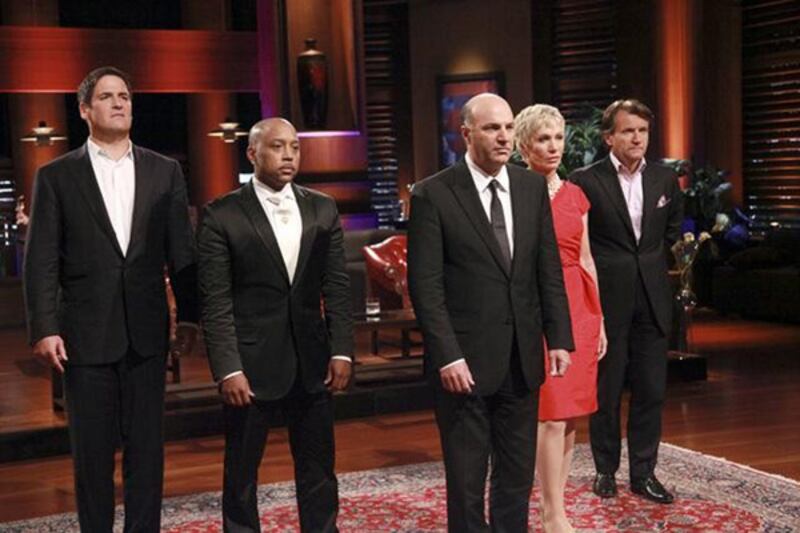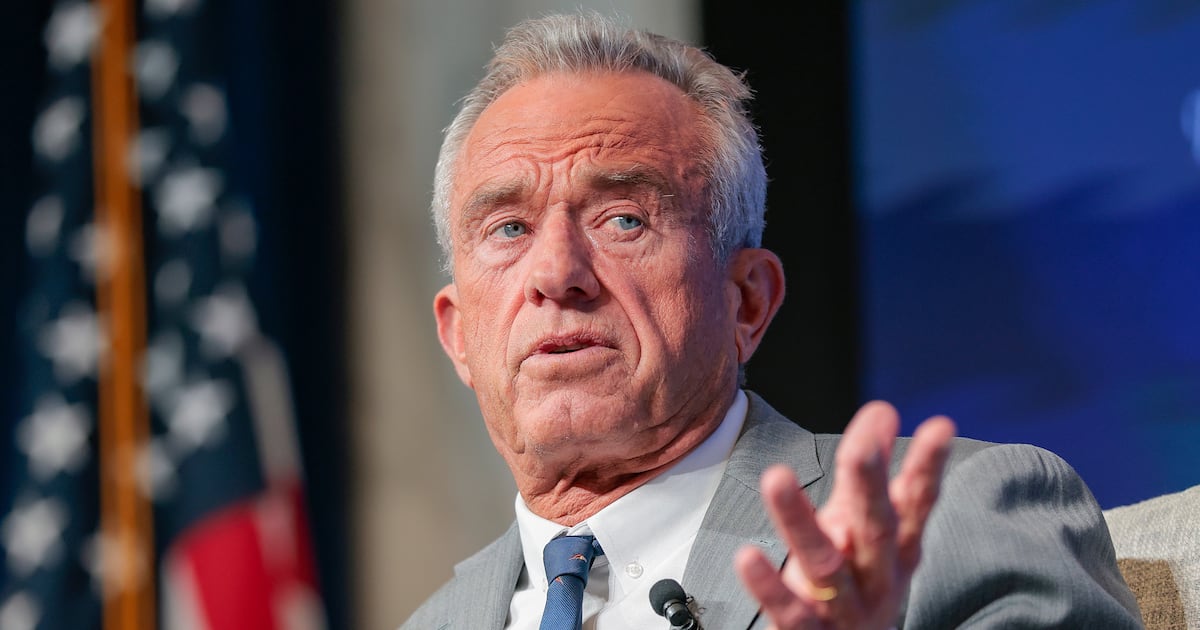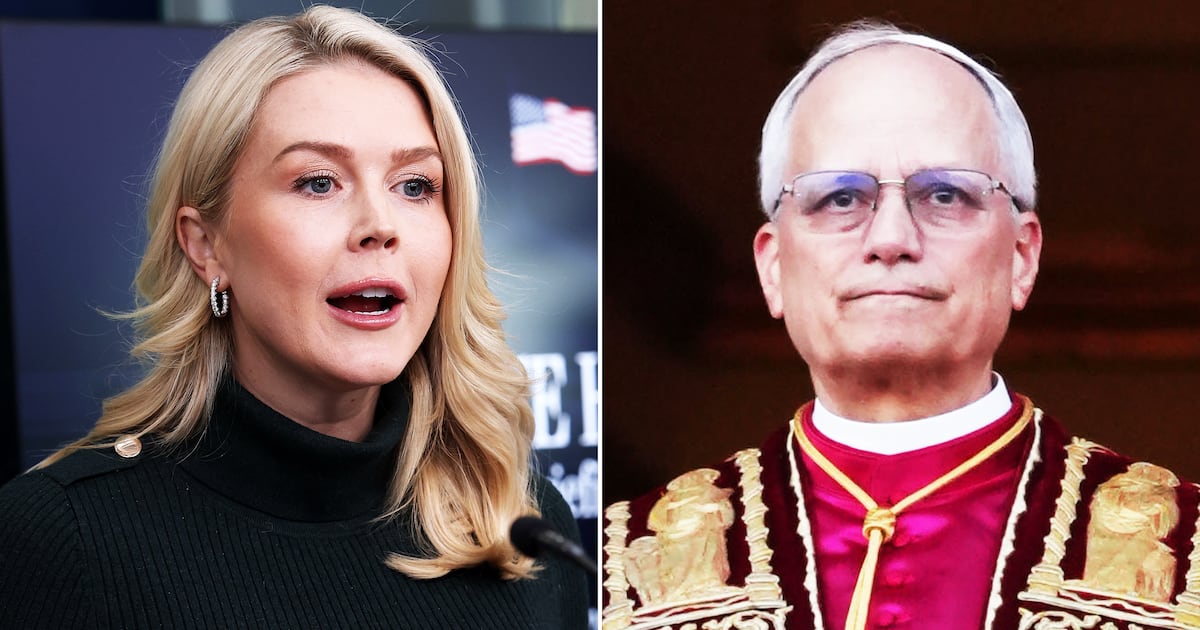Based on Dragon’s Den, the U.K. version of a Japanese format, Shark Tank gives people the chance to pitch their ideas, products, or businesses to five investors who are now filthy rich, but who also started out with nothing. It’s another reality-TV show in which people strive to achieve the American dream—but without the singing.
The format of the ABC series is simple: An entrepreneur presents his or her idea or business and asks for an investment of a certain amount of money for a certain percentage of the company. The sharks ask questions—often tough questions that the contestant clearly never considered—and offer feedback that ranges from ridicule to effusive praise. The sharks can eventually make offers using their own cash, and there can be back-and-forth negotiation, often over the valuation of a company.
The result is a show that’s aspirational, educational, and confrontational all at once, and it is increasingly popular. Last Friday, it beat CBS’s Undercover Boss to become the night’s No. 1 show, and has grown its audience by 33 percent this season—and 42 percent among adults 18 to 49, according to ABC. Not bad for a show that was almost canceled after its first season.
“We’re like a venture-capital company on steroids,” Kevin O’Leary told me. He’s a shark who also appears on Canada’s Dragon’s Den, having made his money from a software company he started in his basement. O’Leary told me that the series are especially attractive because “it’s very hard to raise capital in a venture deal these days. The majority of those who try to raise it don’t get it,” but on the show, the “probability of getting financing is really high.”

O’Leary is the show’s most obvious embodiment of the 1 percent: he’s all about making money and nothing else. He strongly dismisses emotional arguments for ones about the bottom line. The brilliance of Shark Tank, though, is that if there’s an idea the sharks like, they have to compete with each other, giving the power to the person pitching.
Shark Tank is at its best when the sharks go after each other, and the best decision executive producer Mark Burnett and showrunner Clay Newbill made for Season 3 was to replace Kevin Harrington, who rarely made any offers, with Mark Cuban, who has easily tripled the show’s entertainment value.
Cuban has helped the show with his direct feedback and truly sharklike behavior, frequently one-upping other sharks to win a business for himself, or making deals to cut in other sharks while excluding others. Cuban has also been openly hostile toward entrepreneurs with bad or unethical ideas, such as a man trying to sell them a hologram balance bracelet (“It’s a joke. It’s a scam.”).
Although it is edited to be dramatic, the show works because it’s authentic, taking real-life process of venture capital and making it digestible on television. That’s why it attracts everyone from people who create businesses in their kitchens to the inventor of Rollerblades, Scott Olson, who wanted $3 million for 20 percent of his new company, SkyRide, which basically combines a bike and a monorail. The sharks said no.
In its third season, the bar has been raised because it now attracts “much more quality businesses, much more real, and much more substantial businesses,” according to Robert Herjavec, a Canadian Internet entrepreneur who previously appeared on Dragon’s Den for six seasons. Many entrepreneurs are turned away because they haven’t proven that their idea works. “You have to have more validity for your concept or business.”
O’Leary said, “We see real companies with real sales” who are “looking to grow.” One way companies grow is simply by being on Shark Tank, one of its unspoken benefits. O’Leary called the show a “tremendous platform,” and trying to visit the Web site of a company that is featured is often impossible as it collapses under the surge of traffic. One example of the platform at work is Talbott Teas, a company O’Leary invested in. “From the promotion that it got on Shark Tank, Jamba Juice bought the company,” he said.
For all its authenticity, Shark Tank is a TV show, and eight hours of filming results in a 44-minute episode. For every pitch that we see, there may be 45 more minutes that weren’t included; that can include detailed discussions of financials or patents. In that discussion, Herjavec said that “often times, we’ll uncover the value within a business or the flaw within a business, and that takes a lot of questions.” But the sharks start at zero, with no more knowledge than the entrepreneur’s name.
Shark Tank includes follow-up segments with entrepreneurs that the sharks have invested in and the ones they’ve rejected, who can benefit from the publicity and attract business or other investors. But what we don’t see are the investments that fall apart during what’s called due diligence, when investors investigate companies before signing a binding contract. O’Leary and Herjavec estimated that anywhere from a third to a half of the people who get deals on the show never get them signed.
That’s actually better than the venture-capital world, Herjavec said, where he said that for every 100 applications, they’re interested in 20 people, end up doing due diligence on 10, and close two of those deals; of those closed, 15 percent make money. “Sometimes the information isn’t real,” or “sometimes something bad happens, sometimes there’s a disagreement in terms,” Herjavec said. There’s also another reality faced by some people who get deals on Shark Tank: “People sometime have the assumption that it’s their money, not money in the business.”
This season, the show also added QVC star and inventor Lori Greiner, who, like Cuban, is better at sparring than the shark she replaced for a few episodes. She is now stopped on the street by younger people who “love it because they feel they’re really learning from it,” she said. “People really learn how to help themselves, and in an engaging way.”
In one of the series’s best and most unexpected moments, the sharks and entrepreneur discussed and explored the question of sending manufacturing overseas to save money, and that educational discussion eventually led to Herjavec breaking down as he recounted the journey his immigrant family made.
That’s the big surprise of Shark Tank: it makes business personal, for those with money and those with nothing but an idea.
“What you’re really watching when you’re watching Shark Tank is the pursuit of freedom. What does it mean to be wealthy? It means you’re free,” O’Leary told me. “That’s what you’re pursuing when you’re an entrepreneur ... That’s extremely powerful in our culture. We’re an entrepreneurial, capitalist society, and that’s why it’s so engaging. That’s the essence of why this format works so well. It’s watching that process … Someone could win and create a business and become filthy rich; it’s what America was made of.”






